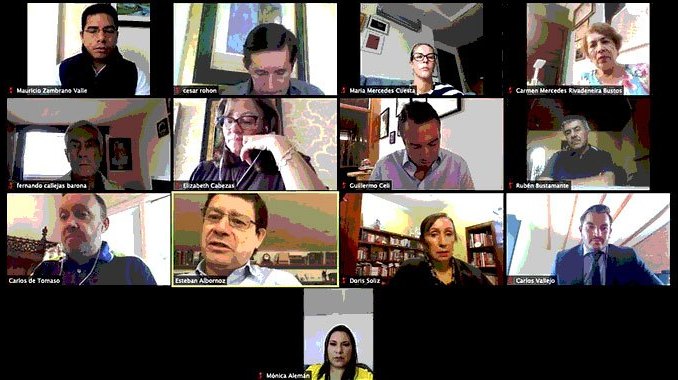
No sector agrees with the Humanitarian Support Law proposed by the National Government
Each one of the involved sectors indicates their objections, because it assures that it harms them.
Representatives of the academy, productive sectors, and workers continue to present their observations and proposals on the Executive’s urgent Humanitarian Support Bill to the Economic Development Commission of the Legislature.
The university professor, Carlos de Tomaso, says that the voluntary contribution, requested by the Government to companies and individuals, breaks the principle of equity.
According to the expert, for the self-employed professional the contribution would imply «a double weight» in his budget.
More than 3,500 workers have been fired from flower farms, citing the cause of force majeure or fortuitous event, said Carlos Vallejo, representative of workers in the flower sector, in the Pedro Moncayo canton.
The people separated from their jobs were those with the longest working seniority, who were close to receiving employer retirement, pregnant or breastfeeding women, people with disabilities or catastrophic illnesses, Vallejo reported.
In this situation, he proposed that the Legislature interpret article 169, numeral 6, of the Labor Code, to make it clear that the causation of fortuitous event or force majeure proceeds only when the continuation of an employment contract is definitively impossible and entails the definitive liquidation of business or economic activity.
Alejandro Martínez, president of Expoflores, asked that the liquidity of the companies be taken care of, to sustain the formal employment places to strengthen the productive apparatus and generate foreign exchange for the economy.
Caterina Costa, a member of the Ecuadorian Business Committee, stated that the 10% reduction in salaries of those who earn more than $ 1,000 in the Executive Function is insufficient. From 2007 to 2019 the State’s wage bill grew by 240%, says Costa.
Regarding social security payment facilities, she thinks that there should be no discrimination between micro, small, medium or large companies. The measure only benefits those who contribute to the IESS 13% and excludes medium and large companies, which contribute 87%, points out Costa.
Vinicio Troncoso, general manager of the Bank of the Ecuadorian Social Security Institute, said that the liquidity is 388 million dollars.
He warned that, if employer contributions are deferred and loan payments are suspended, retirement pensions and health costs from Social Security could not be paid.
Felipe Ribadeneira, President of Fedexport, warned that this tribute accelerates the illiquidity of companies, compromising the sustainability of job positions, payment chain and survival of companies.
Ribadeneira assured that the surcharges to the exporting sector, for the Tax Simplification Law, were 70 million dollars and with this new law it would be 100 million. He stated that, if the Assembly approves this tax, it should exclude exporting companies with a reduction greater than 50% of their sales, in the month of April.
Pablo Albuja, representative of prepaid medicine and health insurance companies, asked that Article 10 proposed by the Executive be not considered, because this would end the liquidity of these companies.
Albuja indicated that they already make a contribution to the management of the health crisis, with Covid-19 coverage, not stipulated in the contracts or in the premiums.
In addition, he asserted that the sectoral law already stipulates, in its article 31, a protection for people who have payment problems. Increasing this term puts the sector’s payment and labor chain at serious risk, he warned.
Francesco Tabacchi and Francisco Chiriboga, representatives of the agricultural and livestock sector, stressed that despite the crisis, food supplies have been guaranteed.
They asked to inject more liquidity into these branches of production; They supported the agreement between the parties, employer and employee, so that jobs are not lost and companies do not close.
Source: National Assembly.


Be the first to comment